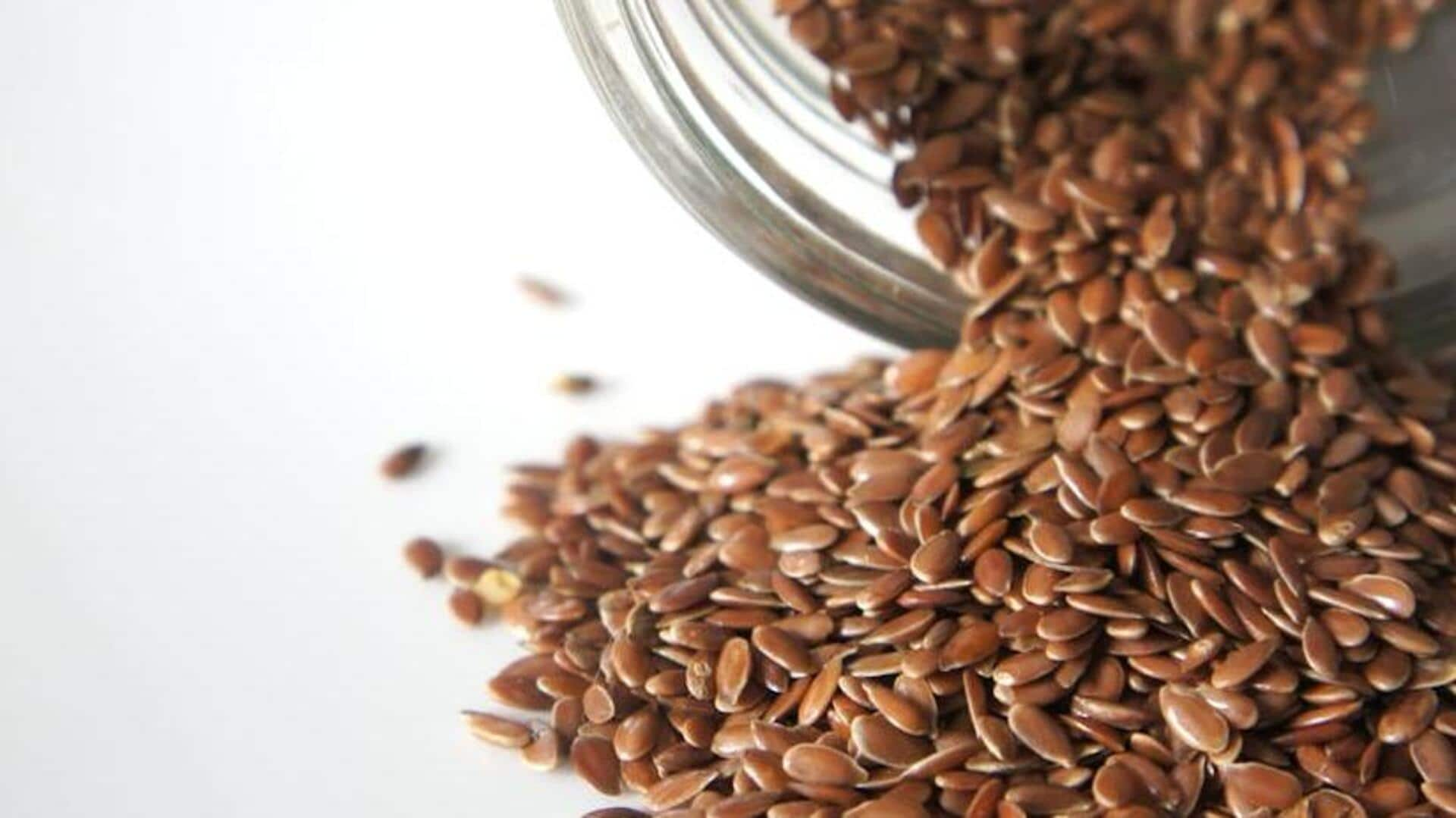
Sesame v/s flaxseeds: Which is healthier?
What's the story
Sesame and flaxseeds are two of the most popular seeds for their nutritional benefits. Both are commonly added to diets for their potential health impacts. While they have a lot in common, sesame and flaxseeds also have some key differences when it comes to their nutritional profiles. Here's a lowdown on their similarities and differences to help you choose the one better for you.
Protein levels
Protein content comparison
Sesame seeds are recognized for their moderate protein content, making it a healthy addition to vegetarian diets. On the flip side, flaxseeds offer slightly lesser protein but are still considered a great source for those looking to boost their plant-based protein intake. Both seeds contribute positively toward increasing protein in a diet, making them ideal for those looking for plant-derived nutrition options.
Fiber content
Fiber benefits of each seed
Flaxseeds are especially rich in fiber, giving you a major boost in terms of gut health and regularity. Sesame seeds also contain fiber but in lesser amounts than flaxseeds. Consuming flaxseeds in your meals can be especially helpful for people looking to increase their fiber intake.
Omega-3 levels
Omega-3 fatty acids presence
Flaxseeds are extremely high in omega-3 fatty acids, which are essential for heart health and reducing inflammation. Unlike flaxseeds, sesame seeds do not contain omega-3s but are loaded with other healthy fats that promote overall health and wellness. If you are specifically looking to boost your omega-3 fatty acids intake, adding flaxseeds to your diet could be a great idea.
Mineral content
Mineral richness of seeds
Both sesame and flaxseeds are loaded with essential minerals such as magnesium and calcium. However, sesame seeds are a clear winner with higher calcium and iron content than flaxseeds. This makes sesame seeds especially attractive for those looking to add an extra mineral boost to their diet.